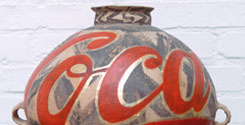Tisch Scholars on the Job
Preliminary results show that students enrolled in the program are more engaged in civic action than most
By Helene Ragovin
Undergraduate students in the Tisch Scholars program showed more interest and involvement in civic activities than students not enrolled, according to preliminary findings from a study by Tufts’ Office of Institutional Research and Evaluation.
The results were presented by Dawn Geronimo Terkla, associate provost for institutional research and evaluation, and her research colleague, Lisa O’Leary, associate director for assessment and evaluation at MIT, at the February meeting of the Tufts Civic Engagement Research Group (CERG). CERG is a collection of Tufts faculty and staff involved in civic engagement scholarship.
The study, known as the “Civic and Political Activities and Attitudes Survey,” is tracking students over a six-year period, their four undergraduate years at Tufts and two post-graduation, starting with the Class of 2007.
The Tisch Scholars program, run through the Jonathan M. Tisch College of Citizenship and Public Service, recruits students in the fall of their first or second years at Tufts. The scholars engage in seminars, workshops and projects relating to active citizenship. During their sophomore year, scholars participate at least eight hours a week in a community service project in one of Tufts’ host communities; in their junior and senior years, they design their own public service projects.
The survey looks at student attitudes and activities regarding civic and political engagement, community service and on-campus Tufts activities.
Initial results from the classes of ’07 and ’08 showed that there was no significant difference in participation in Tufts activities such as sports, on-campus clubs or Greek activities by the scholars and non-scholars. However, the scholars showed more participation in civic engagement, community service and political activities than non-scholars. The survey also found differences in attitudes between the scholars and non-scholars. Scholars believed to a greater extent that involvement in civic activities or politics would have a positive impact; they also were more likely to believe that both government officials and individuals have an obligation to work toward the public good.
Helene Ragovin can be reached at helene.ragovin@tufts.edu.


